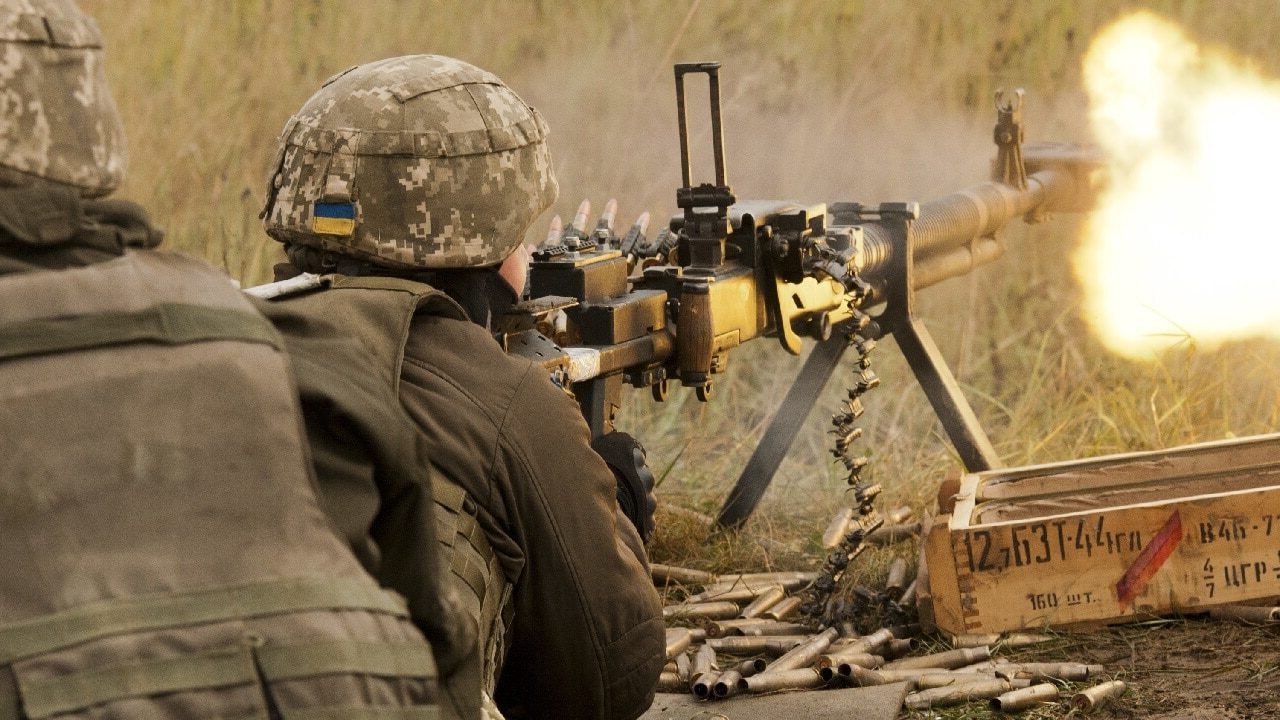The Russian Wagner Group, one of the most known units engaged in the war in Ukraine, is once more in the news.
(Subscribe to 19FortyFive‘s New YouTube Channel here.)
The mercenary group has likely stopped recruiting prisoners to support its combat operations on the ground.
Wagner Group in Ukraine
The infamous private military company Wagner Group has been playing a significant role in the Kremlin’s “special military operation” in Ukraine.
Although the Russian military began as the main fighting force, its repeated failures to achieve the Kremlin’s objectives on the ground led Russian President Vladimir Putin to try other methods.
He thus turned to one of his lackeys, Yevgeny Prigozhin, who is the leader and backer of Wagner Group.
Wagner Group assumed an increasingly important role in the Russian campaign, especially in the Donbas around Bakhmut.
To support its operations, Wagner Group got the green light from the Kremlin to recruit Russian convicts, including murderers and rapists, from the country’s large penal population.
In exchange for six months of service on the frontlines, the prisoners gain their freedom regardless of their offense.
However, the convicts must survive the meatgrinder that is the Ukrainian conflict first.
And most don’t.
Wagner Group leaders have been using the convicts as cannon fodder, sending wave after wave of troops against Ukrainian fortified positions.
As a result, the vast majority of convicts don’t make it.
In the fall, the U.S. Intelligence Community assessed that Wagner Group was fielding around 50,000 troops in Ukraine, with 40,000 of them being prisoners and the rest contractors.
But now Prigozhin has stated that Wagner Group has stopped recruiting prisoners.
No More Prisoners
The leader of the private military company said last week that his company has stopped recruiting inmates.
“Data from the Russian Federal Penal Service had already suggested a drop-off in the rate of prisoner recruitment since December 2022. News of the harsh realities of Wagner service in Ukraine has probably filtered through to inmates and reduced the number of volunteers,” the British Military Intelligence assessed in its latest estimate of the war.
But there are other likely factors around the termination of the prisoner recruitment scheme.
Inside rivalry between the Russian forces has likely played a key part in Wagner Group’s decision to cease the recruitment of prisoners.
To put it mildly, the Russian Ministry of Defense and Wagner Group don’t get along, with open accusations and insults going both ways.
“A key factor in the termination of the scheme is likely increasingly direct rivalry between the Russian Ministry of Defence and Wagner. The regular Russian military has likely now also deployed the vast majority of the reservists called up under ‘partial mobilization,” the British Military Intelligence added.
Serving in Wagner Group isn’t the most appealing prospect for many Russians anymore.
And Wagner Group has been largely responsible for this. The mercenary group has been releasing gruesome videos with executions of mercenaries—including a killing with a sledgehammer—who defected or retreated without orders.
“The Russian leadership faces the difficult choice of either continuing to deplete its forces, scale back objectives, or conduct a further form of mobilization,” the British Military Intelligence added.
BONUS: The Fall of Joe Biden Has Started
BONUS: Donald Trump Looks At His End
BONUS: Kamala Harris Should Quit
Expert Biography: A 19FortyFive Defense and National Security Columnist, Stavros Atlamazoglou is a seasoned defense journalist specializing in special operations, a Hellenic Army veteran (national service with the 575th Marine Battalion and Army HQ), and a Johns Hopkins University graduate. He is currently working towards a Master’s Degree in Strategy and Cybersecurity at the Johns Hopkins University’s School of Advanced International Studies (SAIS). His work has been featured in Business Insider, Sandboxx, and SOFREP.

